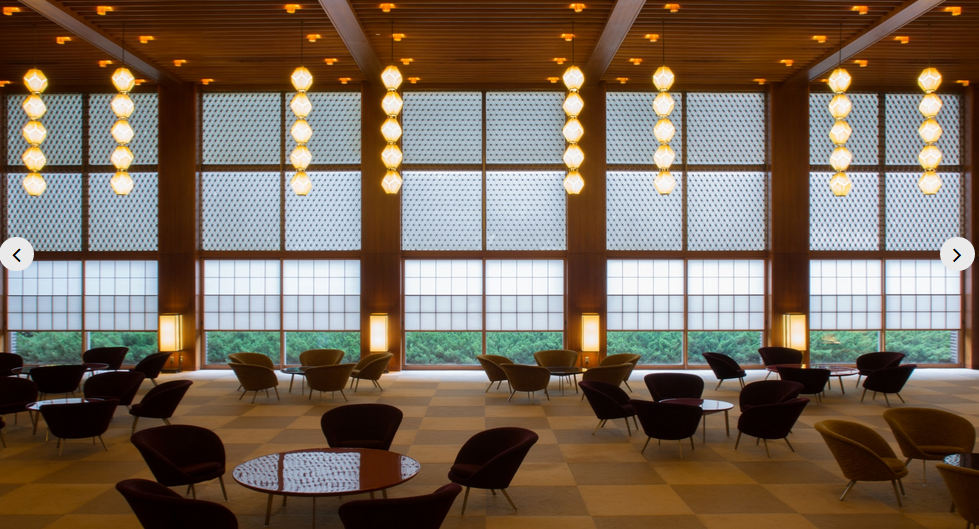by Russel Wong in an article from the Kyoto Journal
The announcement that the Hotel Okura was slated for demolition in the summer of 2015 reverberated around the world, and was duly met with harsh criticism. Architects, designers and historians, not to mention the hotel’s former patrons — including heads of state, world-class actors and fashion house moguls — lamented that the Okura’s unique sensibility could never be replicated. Many fear that the ‘renewal,’ which comes in advance of the 2020 Tokyo Olympics, marks the beginning of a misguided campaign to make way for glitzier, modern establishments to accommodate foreign spectators at the expense of the capital’s invaluable heritage sites.
Photographer Russel Wong jumped at the chance to capture the Hotel during its last days of operation.
“Hotel Okura has been very close to my heart in many ways. Its embodiment of 60s modernism, and culmination of the finest craftsmanship of the day are just some of the reasons I love it. The last portrait I have of my mum and dad too was shot in the gardens just outside the coffee house.
I had stayed at the Okura several times whilst on jobs. The musicians I work with would also end up at the Okura when in Tokyo. I love the quiet elegance of the place, and of course the lobby, which to me is a masterpiece. There is also a corner to the left of the lobby with a single sofa and shoji screen with a silhouette of bamboo by Tomimoto Kenkichi. I would sit there whilst waiting for shoots to begin late at night, just people-watch and unwind.


Comments
Please demolish the old Hotel Okura. Also, kindly build an edifice even more worthy as a next step. Look to the future, keep ecology, touch tradition, but aim higher for the future generations who will use and appreciate a fine atmosphere. Bury the past. It’s gone, departed, erased from all minds. Design the future.
In “The Invention of Love”, Stoppard has a character say, “Throughout history people thought they were modern, but we really are.” The thought that building the future commands erasure of the creations of the past arises out of the same impulse that had the Taliban destroy ancient Buddhist monuments. The stunning sensibility at the heart of Japanese aesthetics is nourished by a sensitivity to continuity, with even abstraction drawing its richness from the context of continuity. Creative originality comes from transcending narrow narcissism.